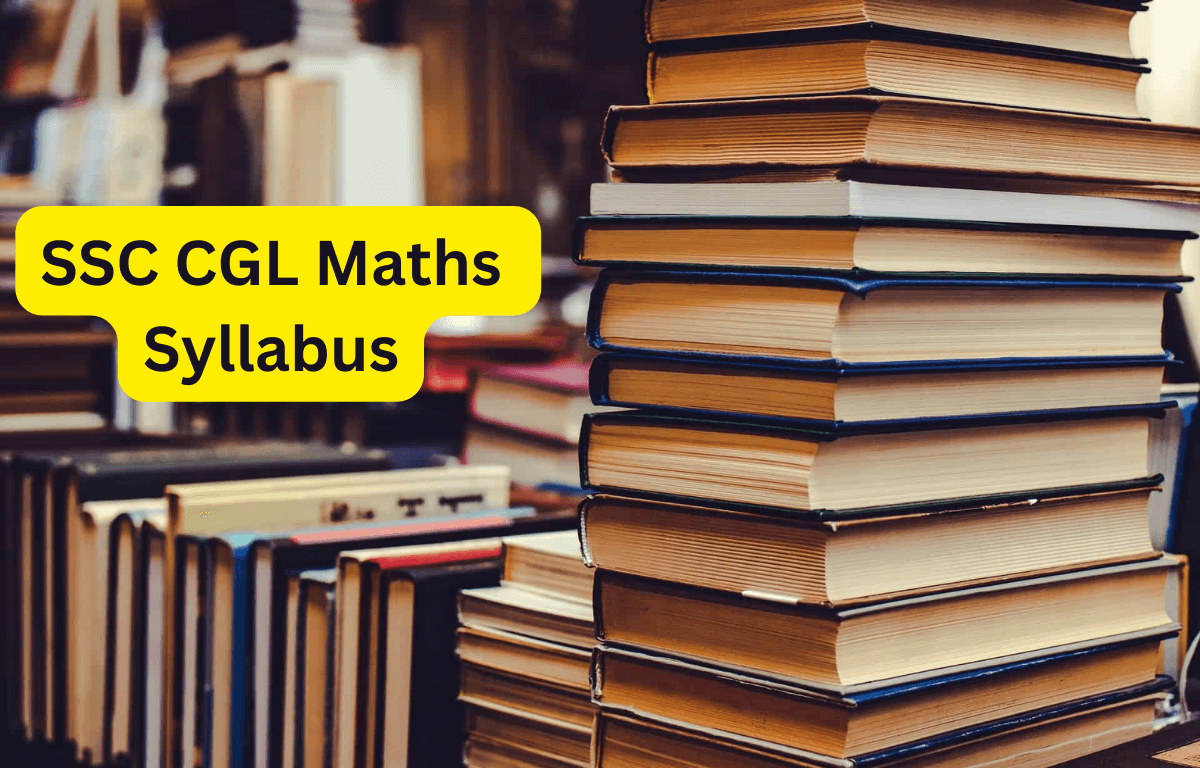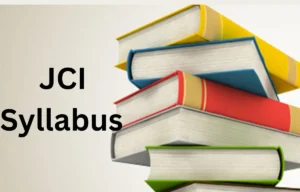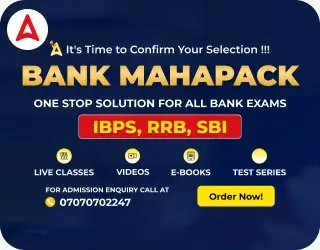Table of Contents
The Staff Selection Commission (SSC) conducts a combined graduate-level examination (CGL) to select candidates for various Group B and Group C posts in different departments, offices, and Ministries of government. In this exam, Maths is one of the most important as well as scoring subjects in the examination. Understanding the SSC CGL Maths Syllabus 2025 will help candidates effectively prepare for the quantitative aptitude section. The candidates need more and more practice with the mathematics questions to easily solve the tricky problems in the examination. Candidates can get the topics to prepare for the maths subjects and the topic-wise weightage here in the article.
SSC CGL Maths Syllabus 2025
The authorities conduct the combined graduate level examination in two stages- Tier I and II and the candidates need to be prepared well for both examinations. The questions from the mathematics subject will be asked in both tiers of the examination, so candidates need to grasp the topics better.
| SSC CGL Maths Syllabus 2025- Overview | |
| Organization | Staff Selection Commission |
| Exam Name | Combined Graduate Level (CGL) |
| Mode of Exam | Computer-Based Test |
| Type of Questions | Multiple-Choice Questions |
| No. of Questions | Tier 1: 25 |
| Total Marks | Tier 1: 50 marks |
| Official Website | www.ssc.gov.in |
SSC CGL Maths Syllabus 2025 Topics
Candidates who will appear in the SSC CGL computer-based test must prepare for the mathematics subject well by understanding the topics included in the SSC CGL Syllabus. The candidates mainly need to prepare topics that they have studied in their class 10th class 12th such as algebra, trigonometry, etc.
SSC CGL Maths Syllabus 2025 for Tier 1 Exam
For the SSC CGL 2025 Tier 1 examination, the Quantitative Aptitude chapters that need to be covered are algebra, data interpretation, arithmetic, geometry, trigonometry, etc. The complete chapter-wise topics that a candidate must prepare for the SSC CGL examination are provided below.
Arithmetic
Candidates need to cover a wide range of topics from the Arithmetic chapter such as profit & loss, time & work, percentages, whole numbers, fractions, averages, etc.
- Number System
- Classification Of Number
- Test For Divisibility
- Square & Square Root
- Cube & Cube Root
- Unit Digit & Last 2 Digits
- Factorials
- Number Of Zeros
- Remainder Theorem
- Factor Theory
- Progressions
- Decimal & Fractions
- Simplification & BODMAS
- Exponents(Surds & Indices)
- LCM & HCF
- Ages
- Partnership Business
- Population
- Election
- Income Tax
- Commission
- Set Theory
- Profit & LosS
- Discount
- Simple Interest
- Percentages
- Basics of Percentage
- Successive Change
- Income Expenditure & Saving
- Consumption
- Compound Interest
- SI & CI Mix
- S.I, Installment
- C.L. Installment
- Ratio & Proportion
- Time & Work
- Pipe & Cistern
- Time, Speed & Distance
- Boat & Stream, Races
- Variation
- Coins
- Averages
- Mixture & Alligation
Advance Mathematics
Candidates have to focus also in Advance Mathematics, as these topics are mostly based directly on formulas. Candidates should learn all the formulas related to the geometry and mensuration.
- Algebra
- UV Concept
- Multiple Inverse
- Linear Equation With Two Variables
- Quadratic Equation
- Maxima And Minima
- Binomial Theorem
- Make Perfect Square
- Geometry
- Lines & Angle
- Triangle
- Congruency & Similarity
- Triangle Centre
- Quadrilateral
- Circle
- Polygons
- Co-Ordinate Geometry
- Mensuration 2d (Area)
- Mensuration 3D (Volume & Surface Area)
- Trigonometry
- Measurement Of Angles
- Trigonometric Function
- Ratio Of Standard Angles
- Conversion Of T-Ratios
- Basic Identities
- Sum And Difference Of T-Ratios
- Transformation Of Product Of T Ratios Into Sum And Difference
- Special Properties
- Maximum And Minimum Value Of Trigonometric
- Function
- Multiples And Sub Multiples
- Height & Distances
- DI-Pie Chart
- DI-Bar Graph & Line Graph
- DI-Histogram & Table Chart
- Statistics
- Permutation & Combination
- Probability
SSC CGL Maths Topic wise Weightage Tier 1 Exam
Preparation for the mathematics subject to ace the SSC CGL Tier I examination can be boosted if the candidates prepare as per the weightage of the topics included in the syllabus. The topic-wise weightage will help the candidates decide which topics are more important to be covered and need more practice and hard work. The candidates can check the number of questions for the topics covered in the SSC CGL maths syllabus of the computer-based test from the table below.
| Topics | No. of Questions |
| Average | 1-2 |
| Data Interpretation | 1-2 |
| Number System | 2-3 |
| Time & Work | 1-2 |
| Ratio | 1-2 |
| Time, Speed & Distance | 1-2 |
| Simplification | 1-2 |
| Pipe & Cistern | 1-2 |
| Successive Discount | 0-1 |
| Geometry | 1-2 |
| Trigonometry | 2-3 |
| Mensuration | 2-3 |
| Profit & Loss | 1-2 |
| Total | 25 |
SSC CGL Maths Syllabus 2025 for Tier 2 Exam
The tier II examination includes Mathematical Abilities questions from topics like number systems, geometry, mensuration, and trigonometry, the complete list is provided below.
Fundamental Arithmetic Operations
Candidates need to study the core topics of fundamental arithmetic operations, topics like percentages, square roots, ratio & proportions, averages, etc. are mainly included in it.
- Percentages
- Ratio and Proportion
- Square roots
- Averages
- Interest (Simple and Compound)
- Profit and Loss, Discount
- Partnership Business
- Mixture and Alligation
- Time and distance
- Time and work
Trigonometry
Complementary angles, trigonometric ratios, heights & distances, and standard identities are some of the topics that require more practice. Candidates need to focus on these topics properly to attempt the questions based on Trigonometry in the tier II examination.
- Trigonometric ratios
- Complementary angles
- Height and distances (simple problems only)
- Standard Identities
Number System
Questions asked from the number system chapters are very easy, candidates can easily and quickly attempt the questions based on decimals & fractions, computation of whole numbers, etc.
- Computation of whole numbers
- Decimal and Fractions
- Relationship between numbers (HCF, LCM)
Geometry
Candidates must study topics like circles and their chords, common tangents, geometric figures, congruence and similarity of triangles, etc. from the geometry chapter.
- Familiarity with elementary geometric figures and facts Triangle and its various kinds of centers, Congruence and similarity of triangles
- Circle and its chords, tangents, and angles subtended by chords of a circle, common tangents to two or more circles
Algebra
Basic questions will be asked from the algebra chapter, candidates are required to practice solving some algebraic equations to score good marks in this subject.
- Basic algebraic identities of School Algebra and Elementary surds (simple problems)
- Graphs of Linear Equations
Statistics & Probability
Frequency polygons, histograms, pie charts, tables & graphs are some of the topics that a candidate appearing for the SSC CGL tier II examination needs to study.
- Use of Tables and Graphs
- Histogram
- Frequency polygon
- Bar-diagram
- Pie-chart
- Measures of central tendency: mean, median, mode, standard deviation
- Calculation of simple probabilities
Mensuration
Some questions in the SSC CGL tier II exam will be from topics like quadrilaterals, spheres, triangles, hemispheres, right prism, circles, right circular cone, rectangular parallelepiped, etc.
- Triangle
- Quadrilaterals, Regular Polygons
- Circle
- Right Prism
- Right Circular Cone
- Right Circular Cylinder
- Sphere
- Hemispheres
- Rectangular Parallelepiped
- Regular Right Pyramid with triangular or square Base


 TS SET Syllabus 2025 and Exam Pattern, S...
TS SET Syllabus 2025 and Exam Pattern, S...
 Indian Overseas Bank LBO Syllabus 2025, ...
Indian Overseas Bank LBO Syllabus 2025, ...
 JCI Syllabus 2025 for Junior Assistant, ...
JCI Syllabus 2025 for Junior Assistant, ...


